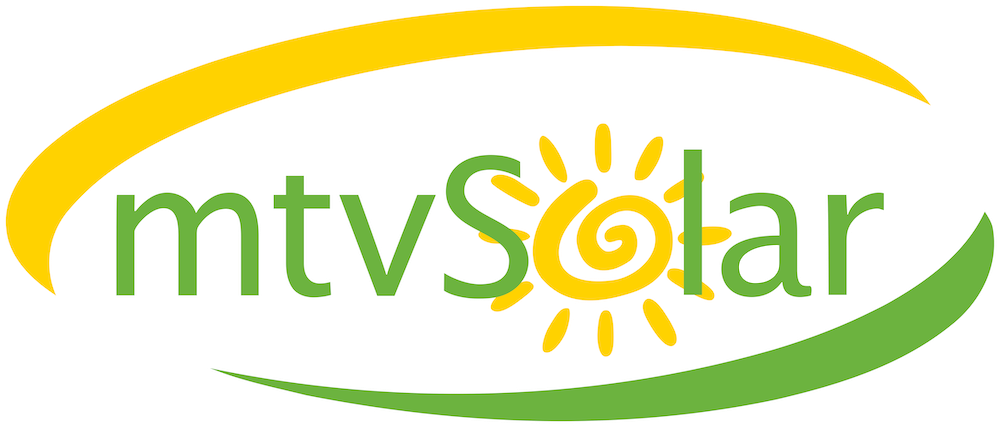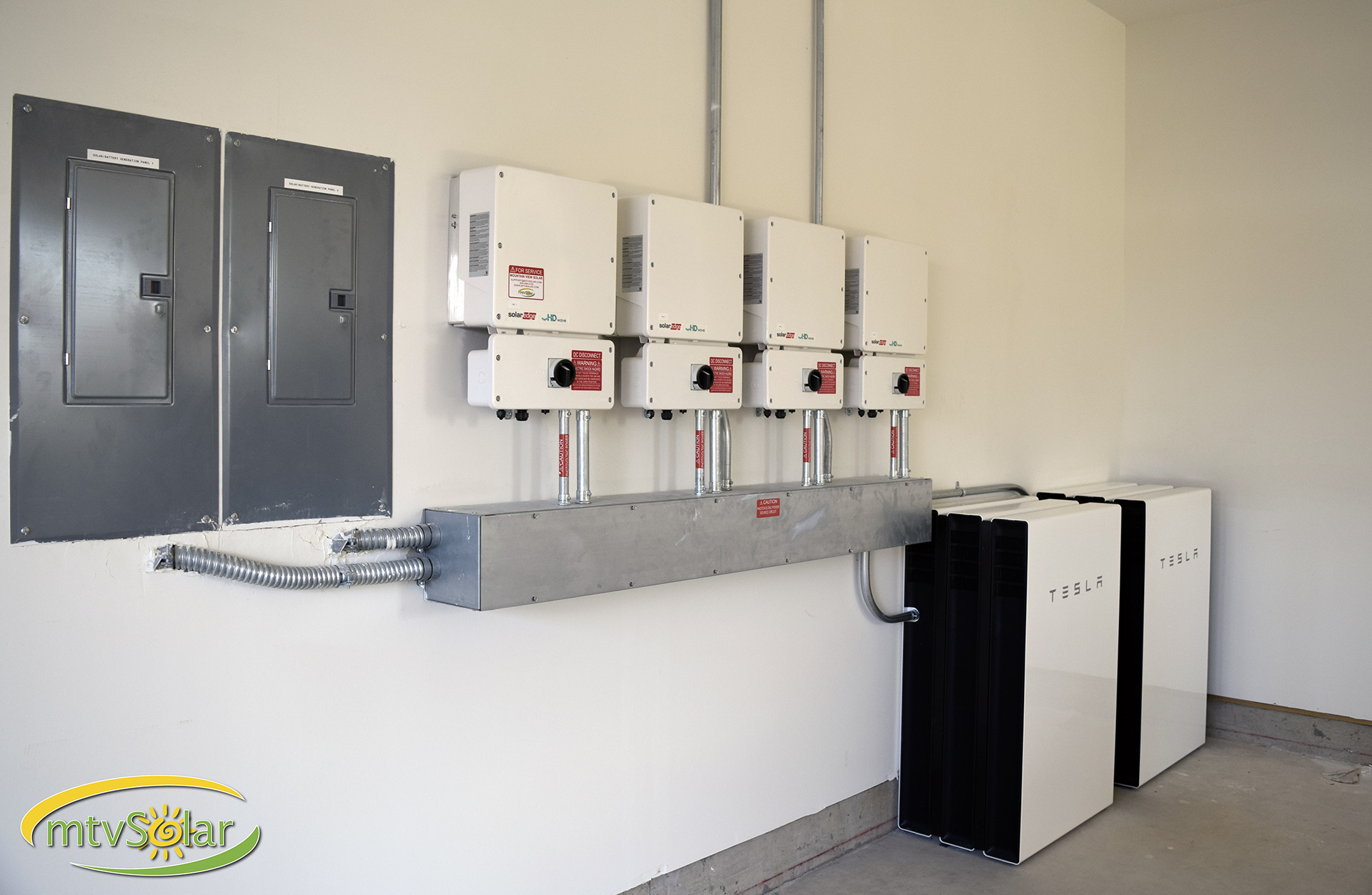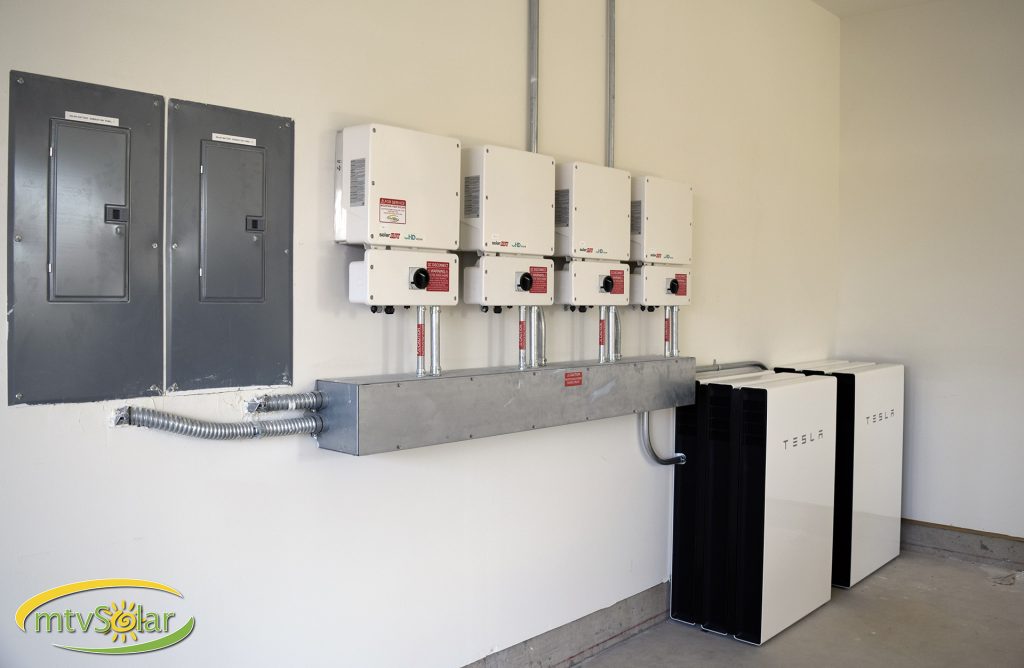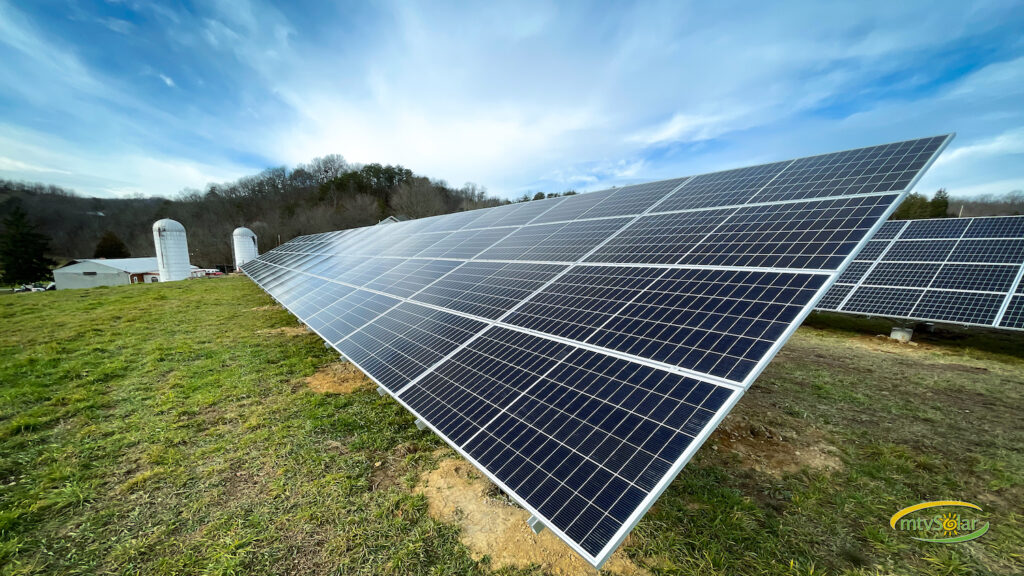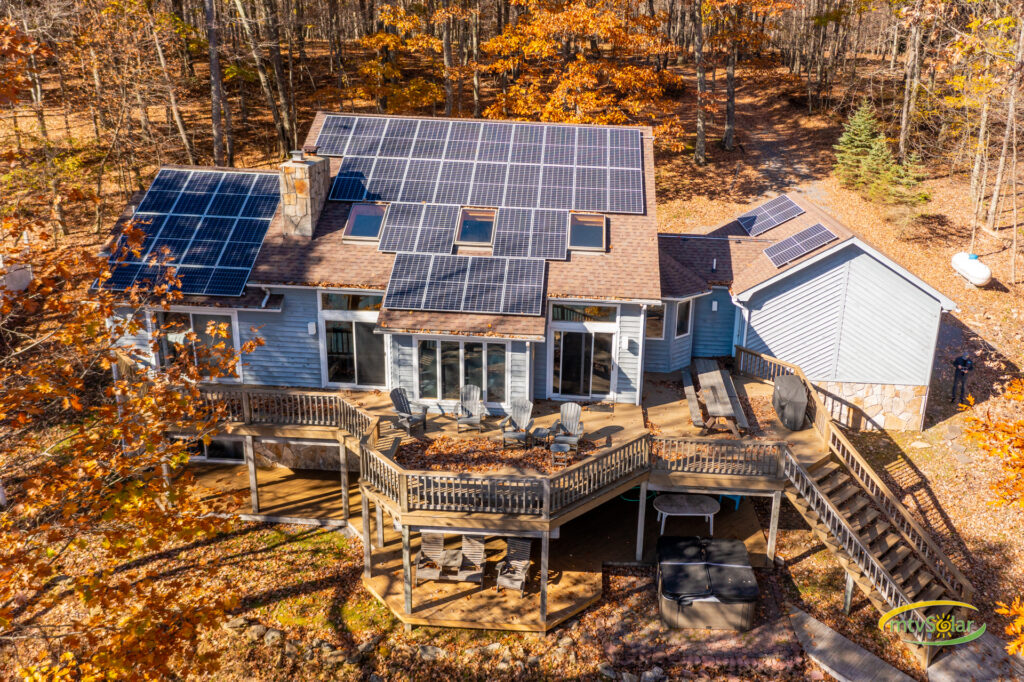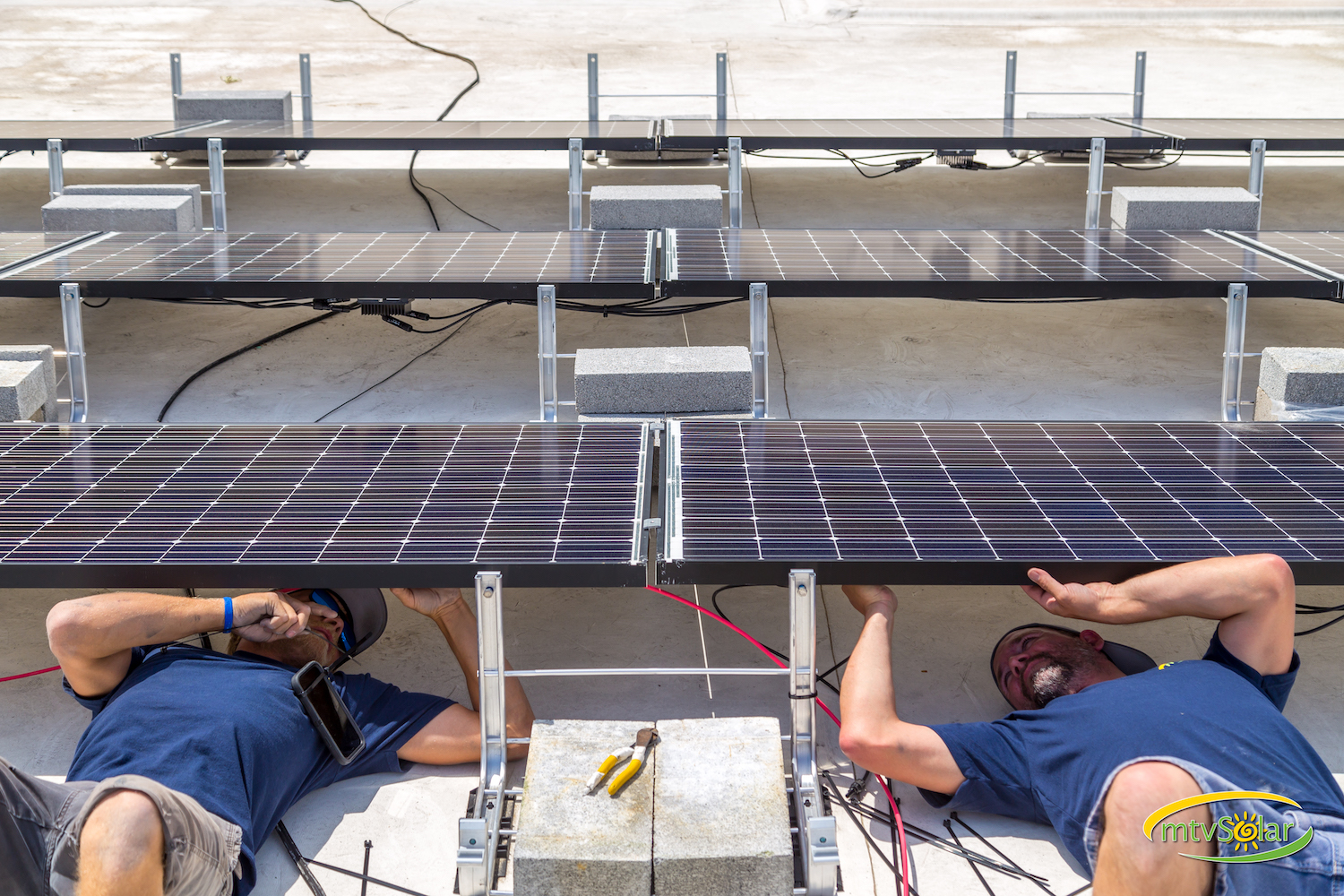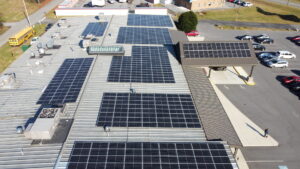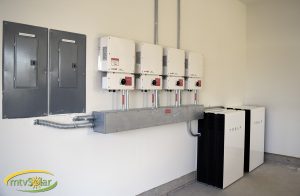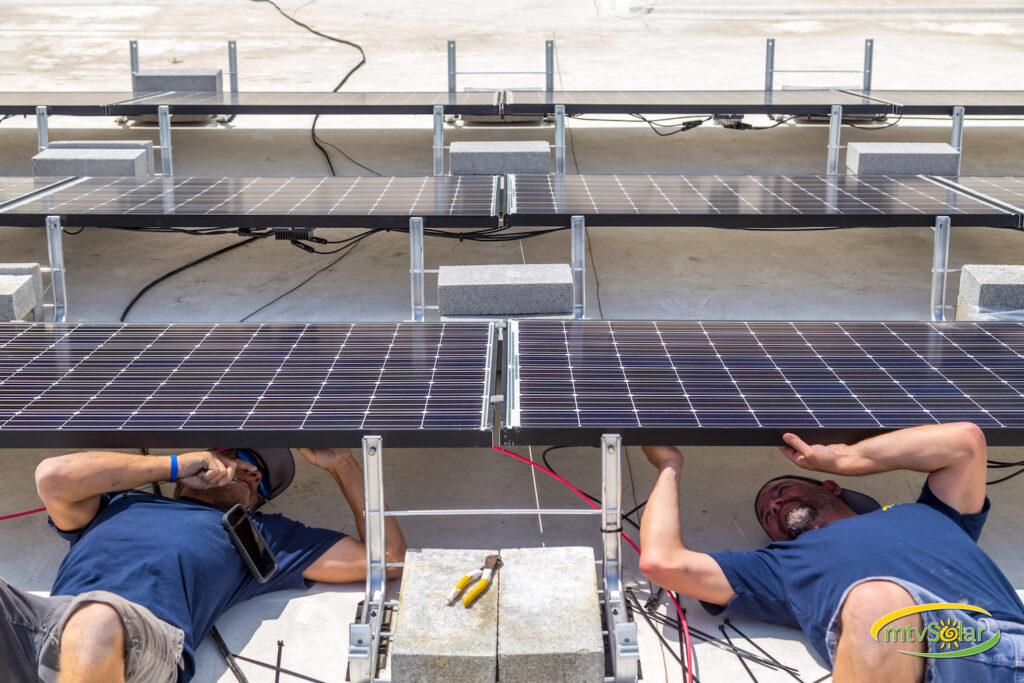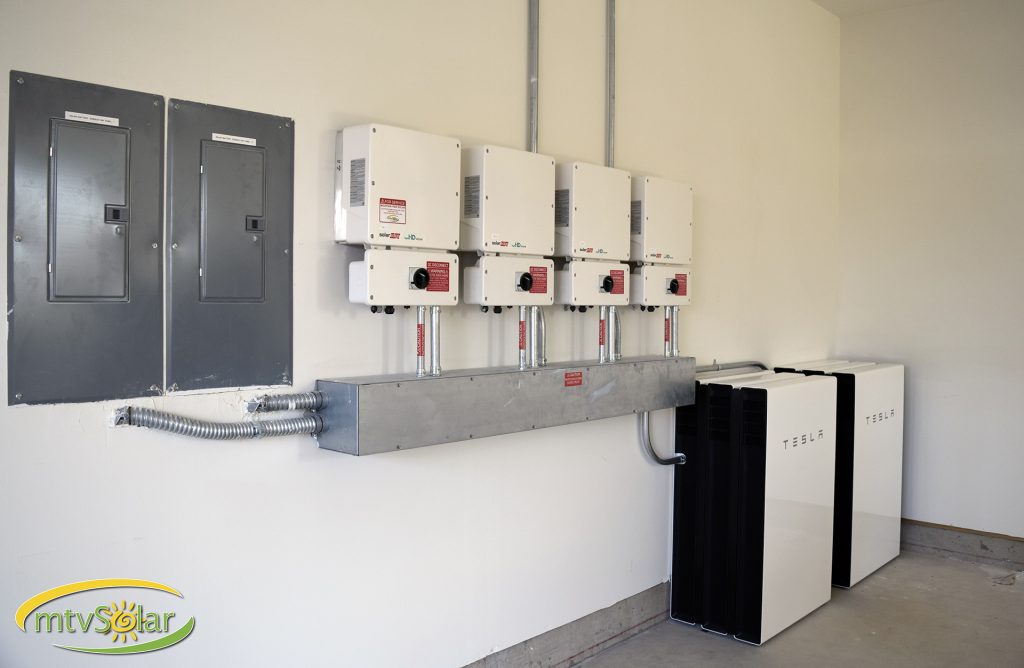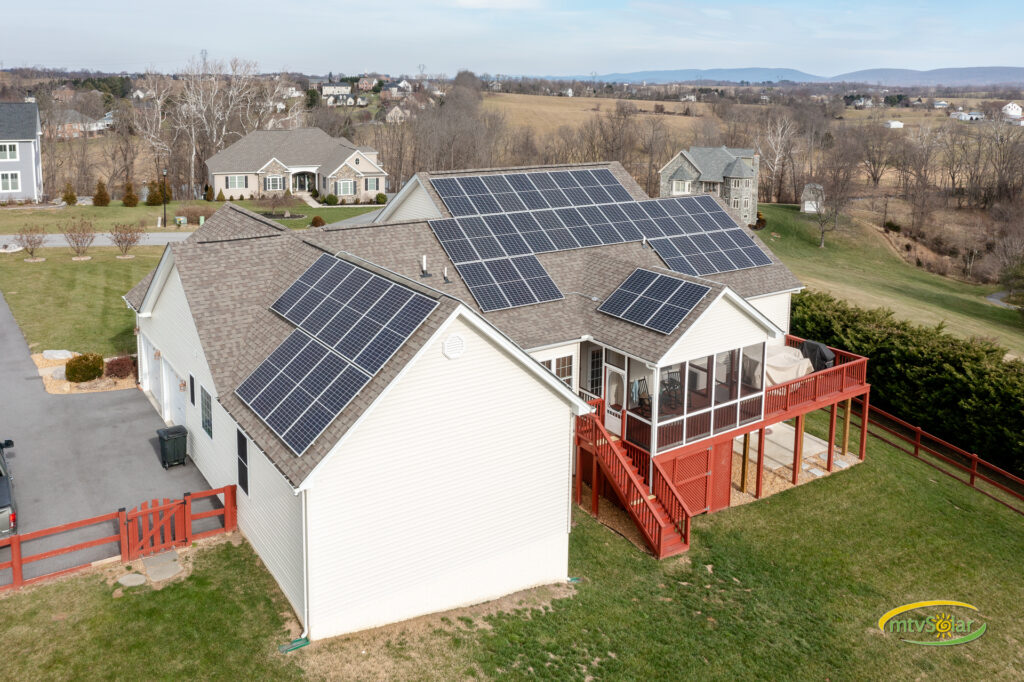Like most solar owners, John Snyder calculated how long it would take for his solar panel array and battery backup system to pay for itself from the initial upfront cost. That calculation prepared he and his wife for a 7-year return on investment. But their solar and battery payoff came much sooner than that. Their 45-panel, 10 kW system was installed by mtvSolar at their Summersville, W.Va. farm in 2011. In June of 2012, a freak derecho storm hit West Virginia, knocking out power to most of the state for 12 days in sweltering temperatures.
“The battery backup system paid for itself in that derecho,” said Snyder. He and his wife watched people lined up at gas stations trying to get gasoline to power their generators to keep refrigerators cool, fans running and supply electricity to essentials.
“We never lost power,” he said. Their solar and battery backup saved two freezers full of expensive meats and specialty products that would have been near impossible to replace. “It paid for itself in one storm,” Snyder said.
Shortly after, Super Storm Sandy knocked power out for another seven days. He and his wife never lost electricity.
Nearly a dozen years later, operating a rare breed chicken farm with multiple coops and pens, the Snyders have an even bigger solar array and slightly different battery backup, all paying for itself in self-generation.

For 10 months of the year, their electric bill is around $5.
Back when the couple started looking for a solar contractor, there were very few choices in West Virginia. He found a number for mtvSolar and called to see if the Berkeley Springs company would travel to Summersville, several hours away, to install a system. A salesman said yes, drove down to see their farm and talk about the possibilities.
Snyder said one thing in particular made an impression on him.
He and his wife had started thinking about a combination of solar panels and wind, thinking one of their fields would be a good candidate for a windmill. The mtvSolar salesman didn’t recommend it. The location would have required a 150-ft. mast and the equipment would have been expensive to repair if anything malfunctioned.
“He could have said, ‘Okay, we’ll sell it to you’ but he didn’t,” Snyder said. That honest approach impressed him, and kicked off a long customer relationship, including added solar panels and battery upgrades.
“We have recommended mtvSolar to anyone who’s looking at solar,” said Snyder.

